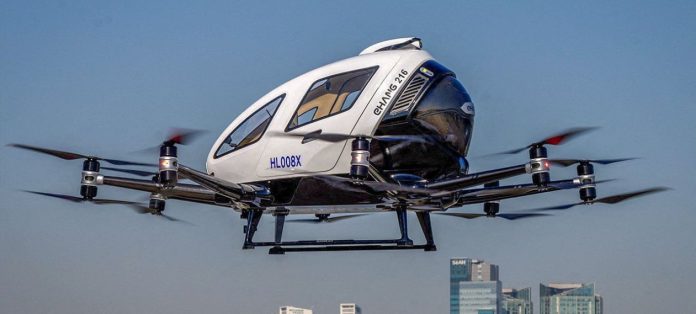China has recently achieved success in testing a two-ton electric vertical take-off and landing aircraft, commonly known as an “air taxi.” Developed by Shanghai Aviation Technology, this air taxi, named M1, is quite impressive in its specifications.
It measures 10 meters in length, 3 meters in height, and has a wingspan of 15 meters. Weighing 2 tons, the M1 has a design range of 250 kilometers and a cruising speed of 200 kilometers per hour. It can comfortably accommodate 5 people and has a maximum load capacity of 500 kg.
What makes the M1 particularly interesting is its ability to take off and land vertically, eliminating the need for a traditional runway. Resembling a drone, this electric aircraft is designed to operate on electricity, contributing to lower noise levels and zero carbon emissions. Its lightweight carbon fiber coating makes assembly efficient, requiring only 2 to 3 people.
China has established itself as a global leader in the development of both unmanned aerial vehicles (UAVs) and electric vertical take-off and landing aircraft (eVTOL). The successful testing of the M1 reflects China’s commitment to advancing innovative and sustainable transportation solutions.
The M1’s characteristics, such as its range, speed, and eco-friendly design, position it as a potential game-changer in urban mobility. Electric air taxis have the potential to revolutionize transportation by offering efficient and environmentally friendly alternatives, especially in crowded urban areas where traffic congestion is a significant challenge.
As technology continues to evolve, China’s strides in electric aviation signify a step towards a future where air taxis could become a common sight, providing a new dimension to public transportation. With its successful test, the M1 stands as a testament to China’s prowess in aviation technology and its dedication to shaping the future of transportation.


